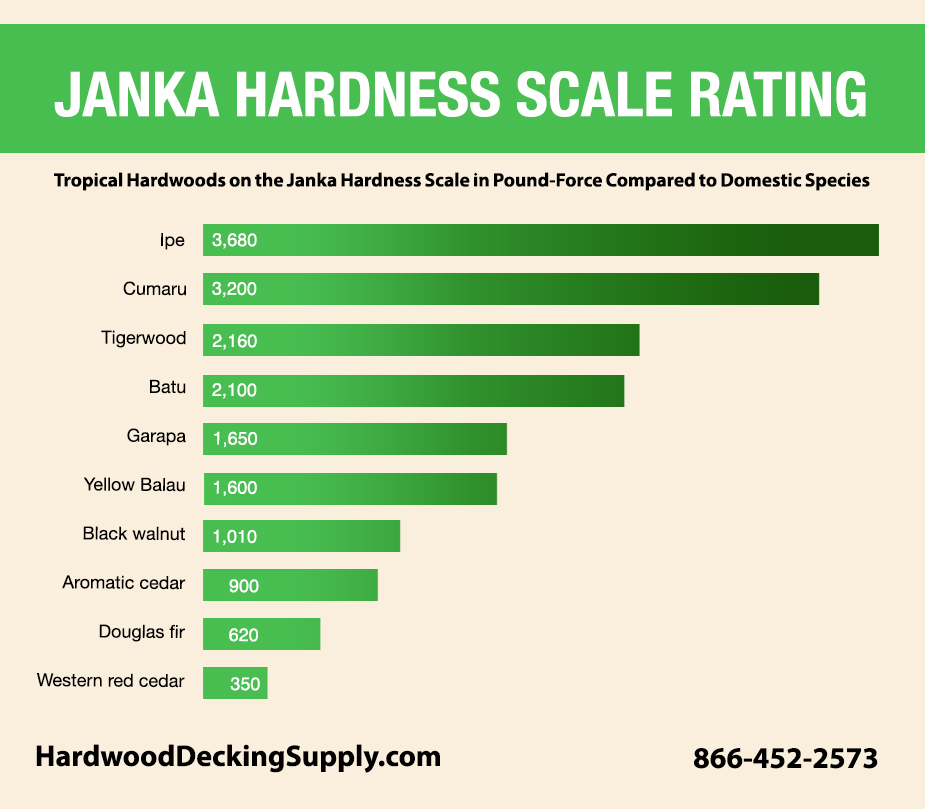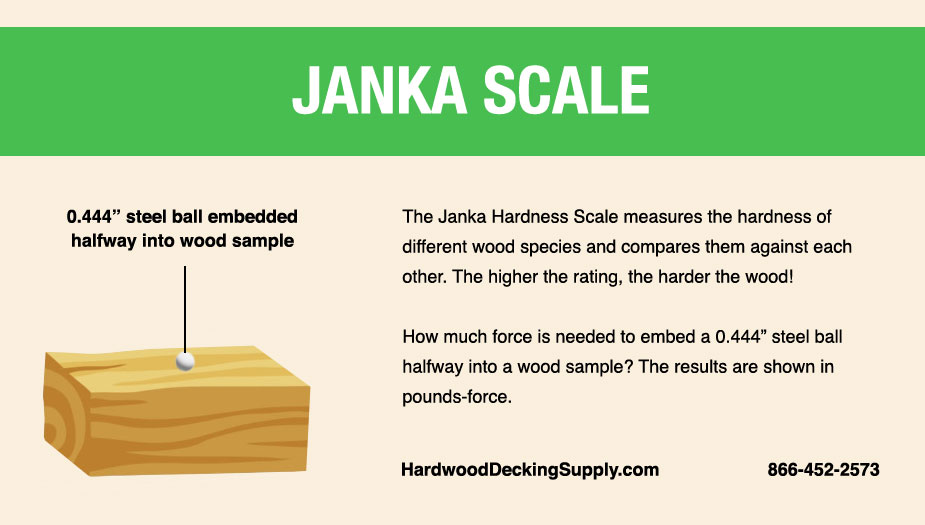What is the Janka Hardness Scale?
The Janka Hardness Scale is something that we often refer to here at Hardwood Decking Supply. Where did it come from, why do we use it, and why should it matter to you? Let’s jump in and learn more!
What does the Janka Hardness Scale measure?
In short, the Janka Hardness Scale measures — surprise! — the hardness of different wood species. The scale looks at the comparative hardness of domestic and exotic woods by measuring how easily different species can be dented and damaged.
The Janka Scale looks at how much force is needed to embed a steel ball (with a diameter of .444 inches) halfway into a wood sample. The results are shown in pounds-force, so woods with higher ratings are harder than woods with lower ratings.
Sampling wood can sometimes be complicated. Since wood hardness varies with the direction of the wood grain, testing can occur perpendicular to the grain (called side hardness) or on the surface of a stump (called end hardness). Tests may be performed on lumber with different widths so the results should be considered an average, not an absolute score. Janka tests also vary by usage. For example, flooring usually follows testing standards of the ASTM D1037, which includes testing the heartwood of a tree, with a sample containing 12% moisture and no knots.
Why does the Janka Hardness Scale matter?
The Janka Hardness Scale is important to consumers and contractors because it’s a great gauge of how wood will hold up under certain conditions and uses. Let’s look at two possible scenarios:
- Family 1 wants a hardwood deck where they’ll entertain groups of friends. This family includes two young children and a large dog. The parents love to grill out and they want to include a serious grill setup with all the bells and whistles. In this case, Ipe hardwood would be the best option due to its incredible hardness (scoring a 3,680 lbs on the Janka Scale) and durability. Ipe easily holds up to abuse inflicted by pets, small children, and parties!
- Family 2 consists of two parents, one teenager, and no pets. They want a hardwood deck for quiet family time, yoga practice, and periodic social gatherings. The needs of these two families are very different and they would benefit from wood species with different hardness.Family 2 might want to consider using garapa hardwood. While still incredibly hard (at 1,650 lbs on the Janka Scale), garapa is not nearly has hard as ipe and thus more affordable.

By understanding what your needs are and where wood species fall on the Janka Hardness Scale, you’ll be able to find the best wood for your project. Don’t pay for a harder ranked wood if you don’t truly need it. On the other hand, don’t pay for a wood that won’t stand up to your lifestyle! Find the right wood for the project.
Contact us with your hardwood decking questions!
If you’d like to learn more about the Janka Hardness Scale, especially as to how it relates to our tropical hardwoods, contact Hardwood Decking Supply at 866-452-2573. Our hardwood decking specialists are friendly and knowledgeable, and they have the experience to advise your wood purchase. We’ll help you assess your projects and your needs and decide what type of wood is right for your project.

